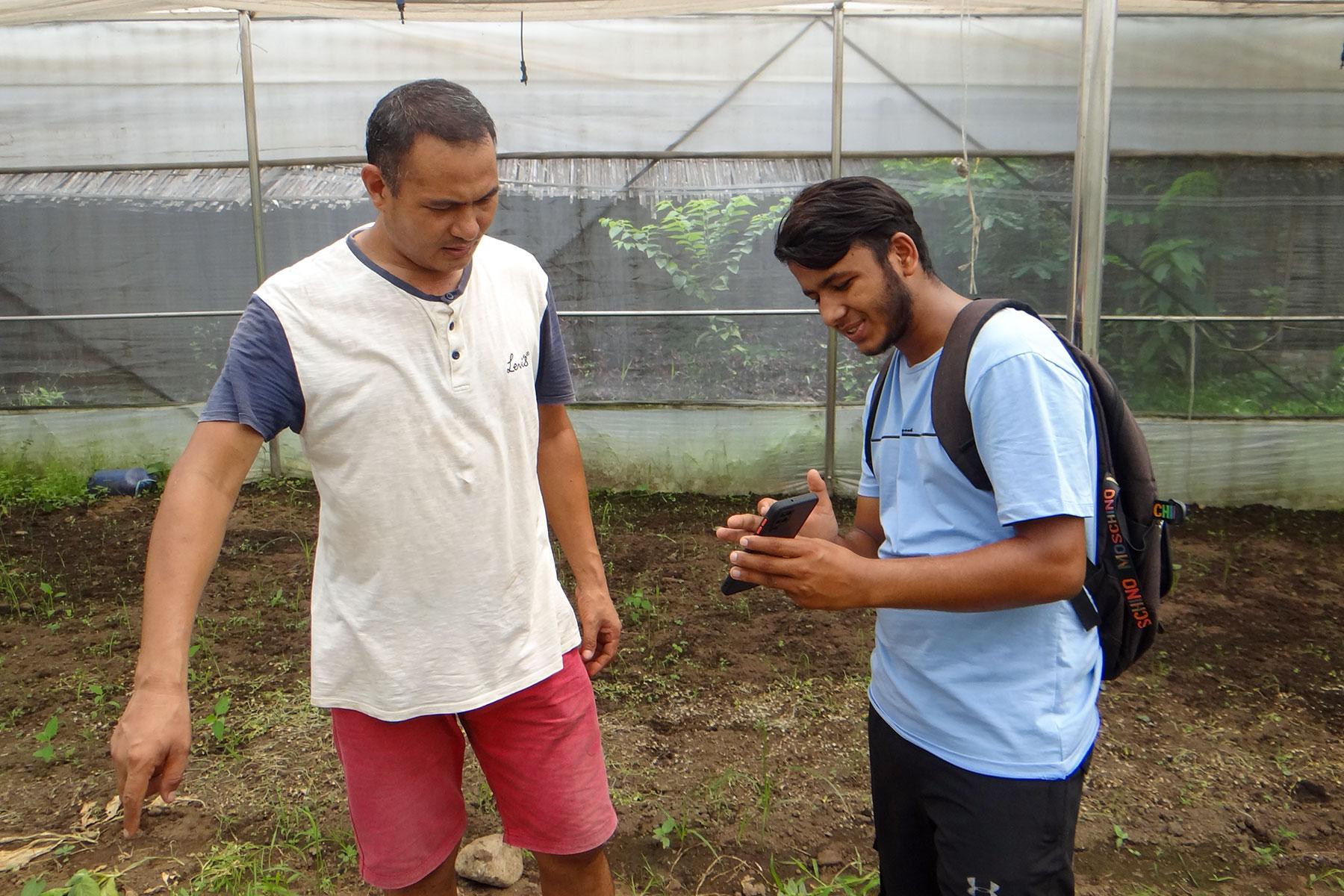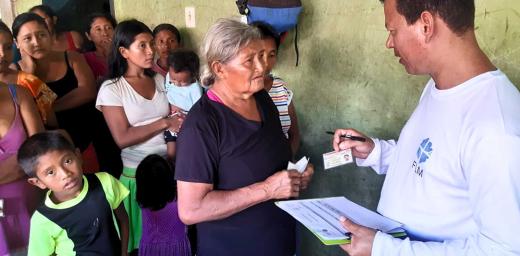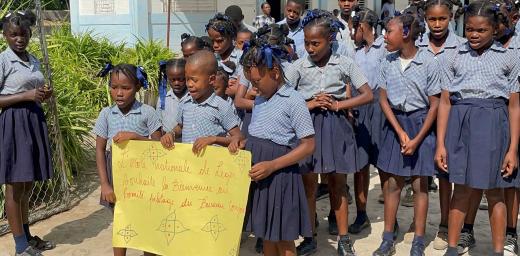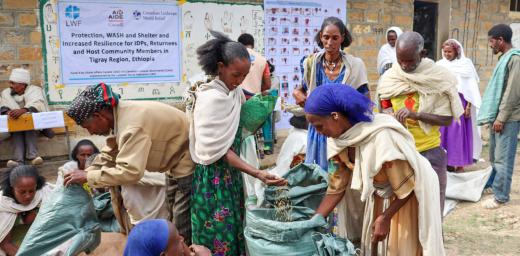Nepal: New mobile application helps local farmers innovate

Anil, LWF Trainee, demonstrates features of the GeoKrishi app to local farmer in Nepal. Photo: LWF Nepal
LWF supports rollout of modern technology for sustainable farming
(LWI) - The Lutheran World Federation (LWF) is supporting farmers in Nepal with an agricultural app in a revolutionary effort to increase access to technical support and provide guidance on sustainable practices that will assist local farmers in expanding their livelihoods.
Providing accessible remote technical assistance for farmers in Nepal
Through the Local Initiatives for Community Empowerment and Development (LICED) Project the LWF is working with GeoKrishi, a private company that provides technical support to farmers through digital services. The project is supported by the Australian Lutheran World Service (ALWS) and the Australian government’s Department for Foreign Affairs and Trade. The app provides remote online support for farmers including agricultural advice and information on best practices. Farmers can take photos of their crops with their phones and ask for online advice to save their crops before it is too late.
“Farmers can collect ideas of how to grow their crops with the help of this tool, and if there is any problem in their crops, they have the opportunity to get information about the best solution found in this app", shared Anil Acharya, LWF Nepal trainee.
Having direct access to technical assistance can be a challenge for farmers in remote villages. Adequate assistance remains an urgent matter when crops are vulnerable to diseases or are withering away. “As a refugee here in Nepal it is difficult to get timely service and support from the local government’s agricultural support service center However, through this app we have easy access to services and practical advice, since a lot of information is already there” Ms. Pabitra Maya Neupane, a Bhutanese refugee farmer, expressed with excitement.
Now farmers and refugees are having remote access to digital agro-advisory services and e-platforms which increase their knowledge and sharing of experiences and makes farming more lucrative and sustainable.
“It has been great to see municipalities working together with a private company like GeoKrishi, in collaboration with LWF World Service Nepal partners, including the Lutheran Community Welfare Society (LCWS). Now farmers and refugees are having remote access to digital agro-advisory services and e-platforms which increase their knowledge and sharing of experiences and makes farming more lucrative and sustainable. The app has potential to look into promoting more environmental smart farming techniques” says Susan Muis, LWF World Service Regional Program Coordinator for Asia.
“First, I was quite doubtful about how the GeoKrishi mobile app would work in practice” Pabitra shared. “Now, I am using the technical knowledge to produce vegetables like tomatoes, potatoes, chilies, beans and cucumber on empty plots inside the camps. I also use the service for papaya farming closer to my home which has now created additional income for me and my family.”
The app provides guidance on pesticides, including the differences between organic and inorganic pesticides used for plant diseases and pest control. It also helps farmers in assessing the quality of seeds, lists supply stores for seeds and fertilizers available in their area and shows the market prices of the various products.
A trustworthy app for expanded agriculture and sustainable livelihood
The technology is accessible, inexpensive and promotes self-learning. With time, users have grown to trust the app to improve their technical knowledge and farming practices. Since the information can be accessed from home, the app has been a success during the COVID pandemic outbreak when travel was restricted and many were forced to stay in their villages.
“Many farmers like me need a refresher training on how to explore the specific features on the app and fully benefit from the information available. Some female farmers, who have limited or no access to formal education are facing challenges in fully exploring what is provided on the app.” Neupane commented, “I want to diversify the types of vegetables and produce cash crops in order to get more income. However, I need regular technical support to be able to achieve this. With the app this is now possible.” She further explains, that it would be helpful to improve the app by including all crop varieties and therefore increase options for agricultural expansion and sustainable livelihood.
By LWF/T. Rakoto





